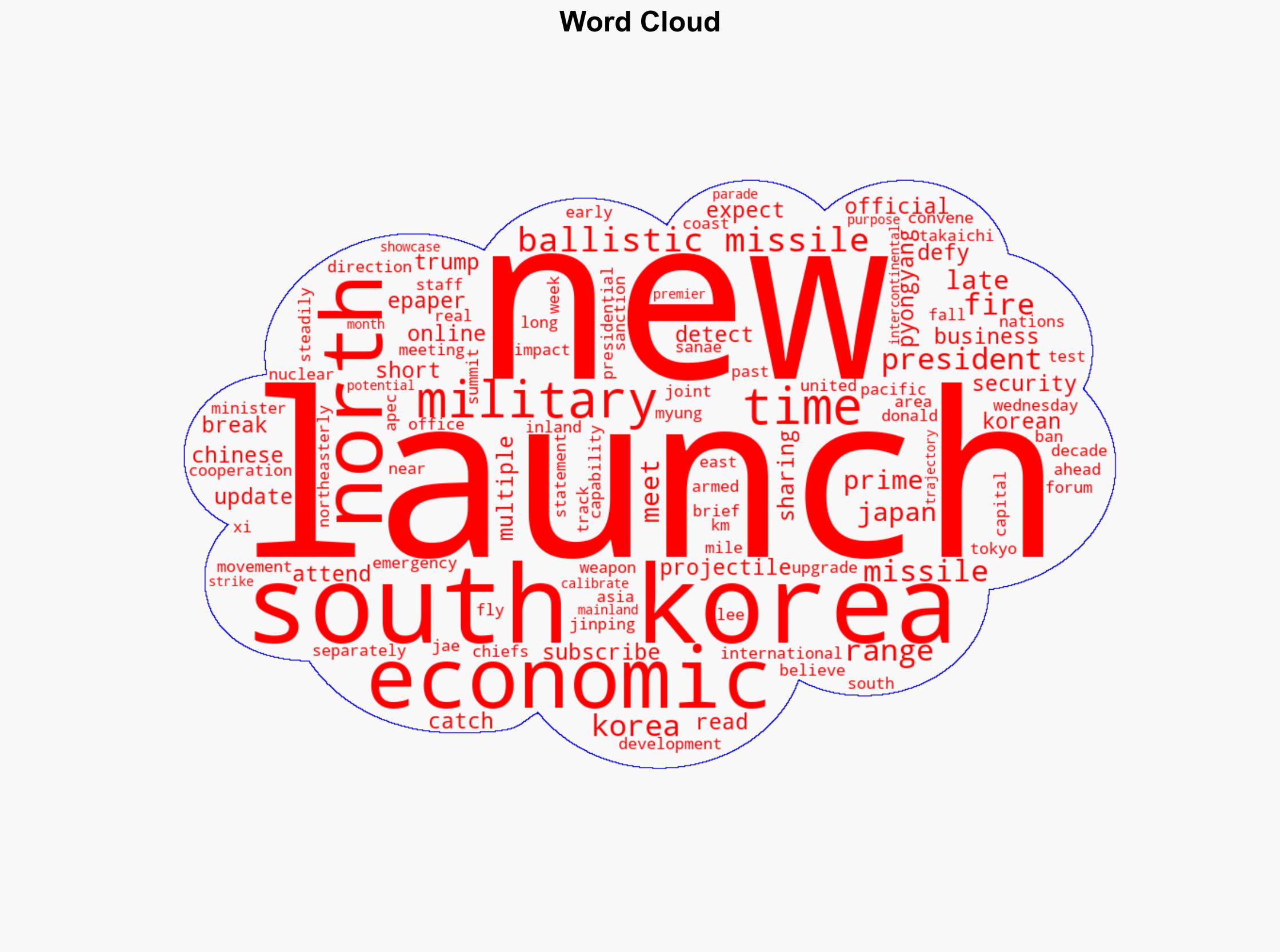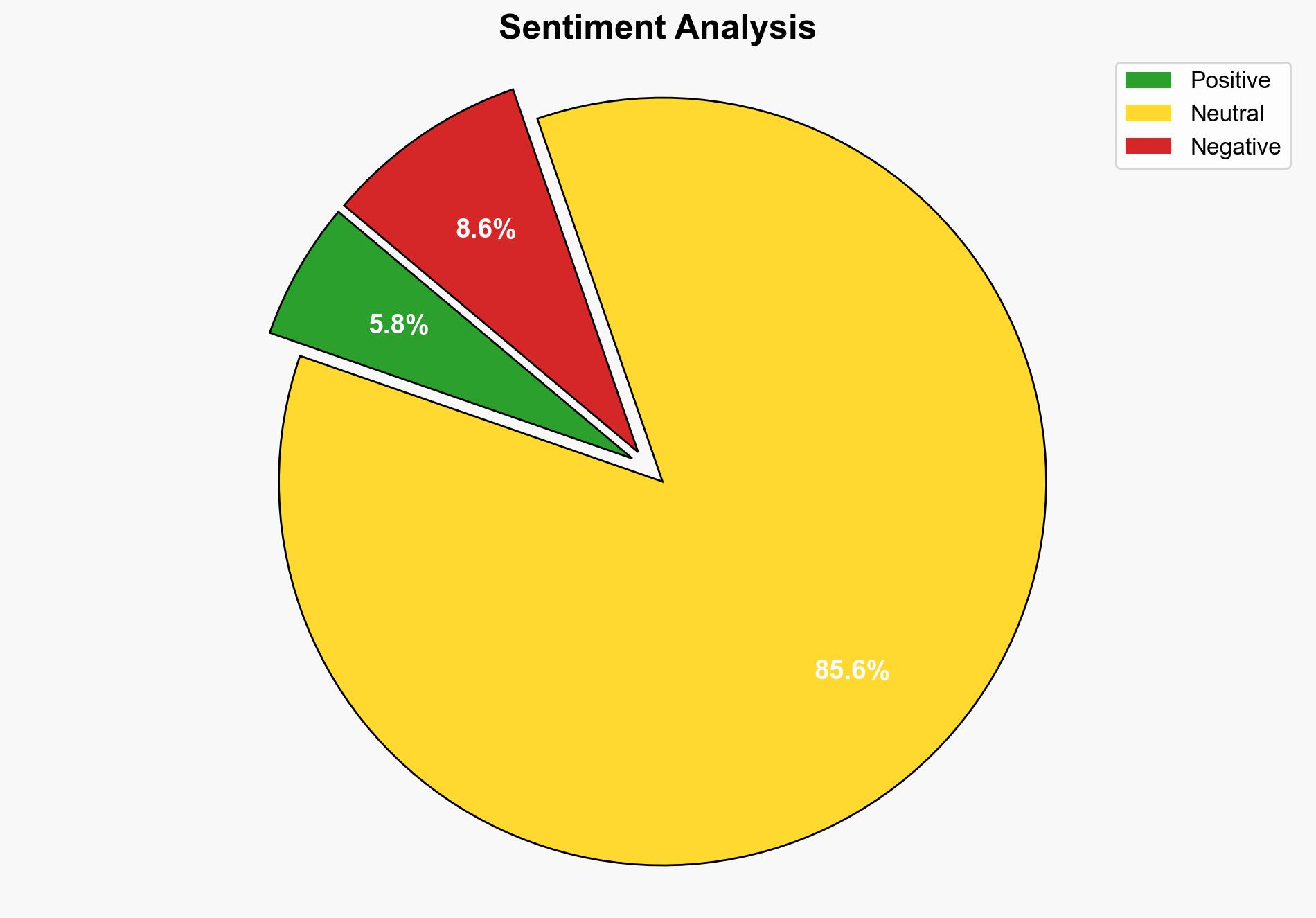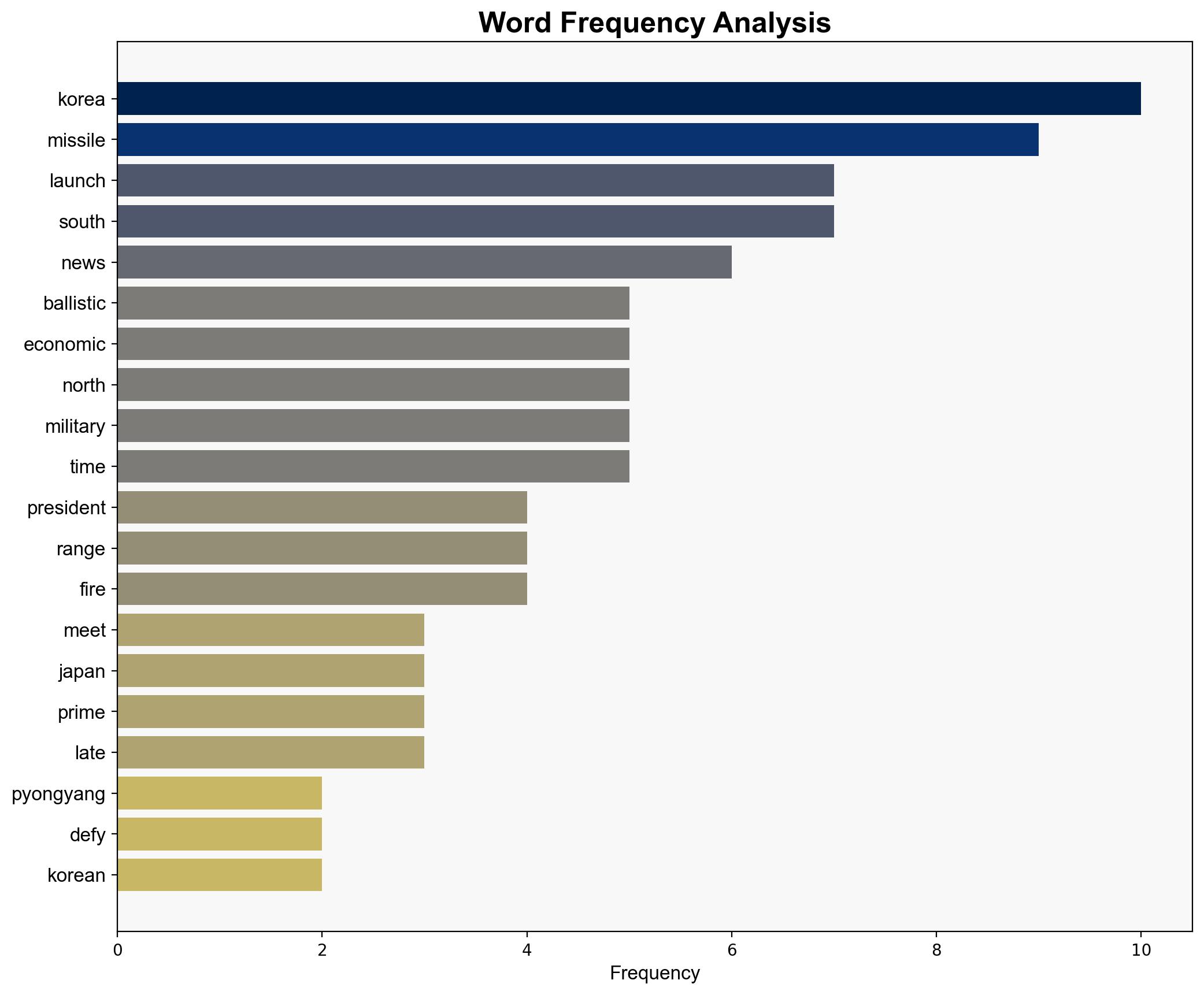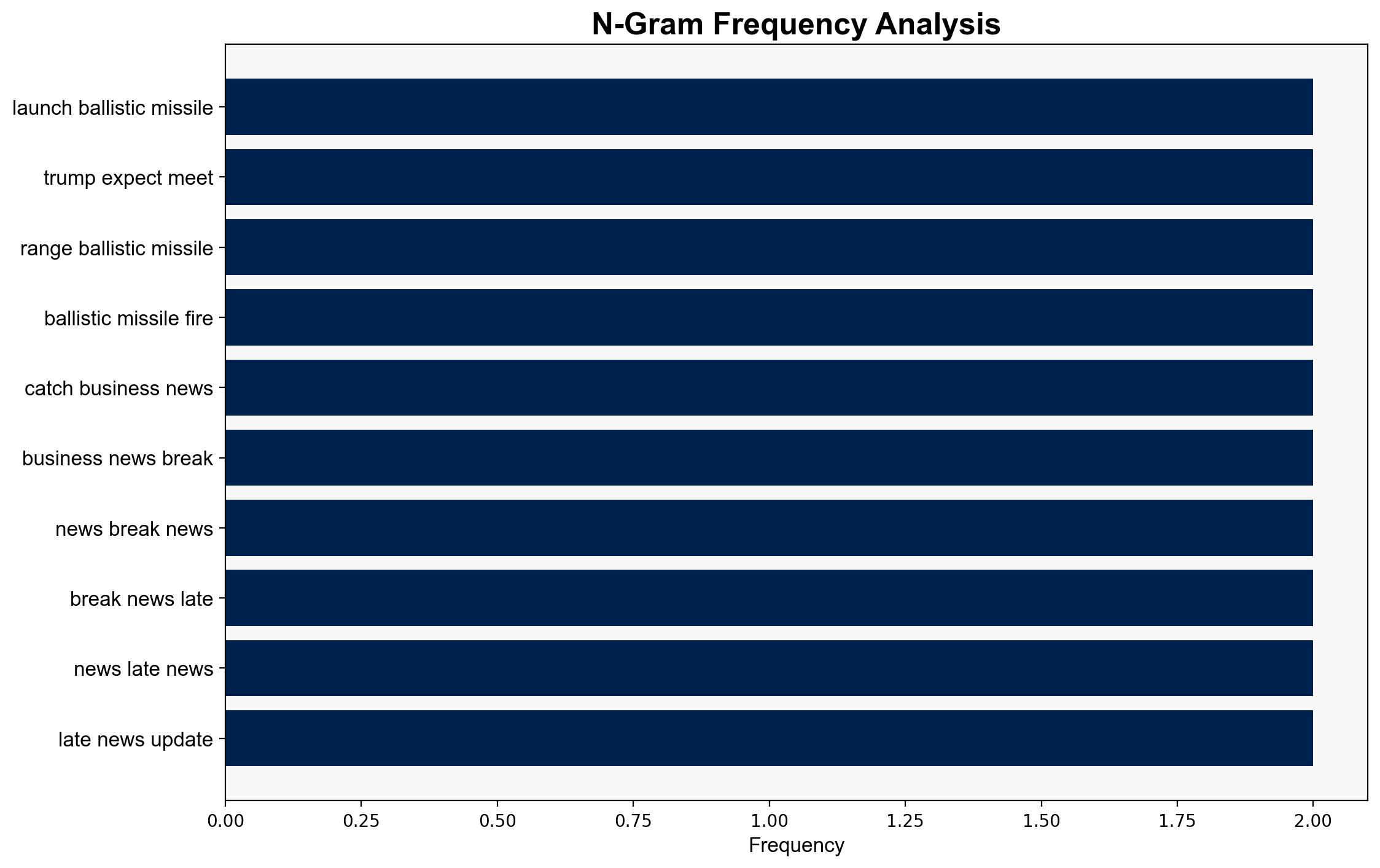North Korea fires ballistic missiles week before leaders meet in South Korea – The Times of India
Published on: 2025-10-22
Intelligence Report: North Korea fires ballistic missiles week before leaders meet in South Korea – The Times of India
1. BLUF (Bottom Line Up Front)
North Korea’s recent ballistic missile launch is likely a strategic maneuver to assert its military capabilities and influence upcoming diplomatic engagements in South Korea. The most supported hypothesis suggests this is a calculated demonstration of power aimed at gaining leverage in international negotiations. Confidence level: Moderate. Recommended action: Increase diplomatic engagement and enhance regional defense readiness.
2. Competing Hypotheses
Hypothesis 1: North Korea is using missile tests to demonstrate military strength and influence diplomatic discussions at the upcoming APEC forum, particularly with the presence of Donald Trump and Xi Jinping.
Hypothesis 2: The missile launch is primarily a domestic signal to reinforce internal political stability and demonstrate regime strength amid international sanctions and economic challenges.
Using ACH 2.0, Hypothesis 1 is better supported due to the timing of the launch coinciding with high-profile international meetings, suggesting a strategic intent to impact diplomatic dynamics.
3. Key Assumptions and Red Flags
Assumptions include North Korea’s rational actor model in international relations and the belief that missile tests are primarily for external signaling. A red flag is the lack of detailed information on the missile’s capabilities and potential new technological advancements. Additionally, there is a blind spot regarding internal North Korean political dynamics that could influence the decision-making process.
4. Implications and Strategic Risks
The missile launch could escalate regional tensions, prompting increased military readiness from South Korea, Japan, and the U.S. This action may also trigger a cycle of provocations and responses, heightening the risk of miscalculation. Economically, continued sanctions could further isolate North Korea, while cyber threats may increase as a form of asymmetric warfare.
5. Recommendations and Outlook
- Enhance diplomatic channels with North Korea to de-escalate tensions and explore avenues for negotiation.
- Strengthen regional missile defense systems and conduct joint military exercises to deter further provocations.
- Scenario projections:
- Best Case: Diplomatic engagement leads to a temporary freeze on missile tests.
- Worst Case: Escalation results in military confrontation in the region.
- Most Likely: Continued missile tests with intermittent diplomatic overtures.
6. Key Individuals and Entities
Donald Trump, Xi Jinping, Lee Jae Myung, Sanae Takaichi
7. Thematic Tags
national security threats, regional focus, missile defense, diplomatic strategy





